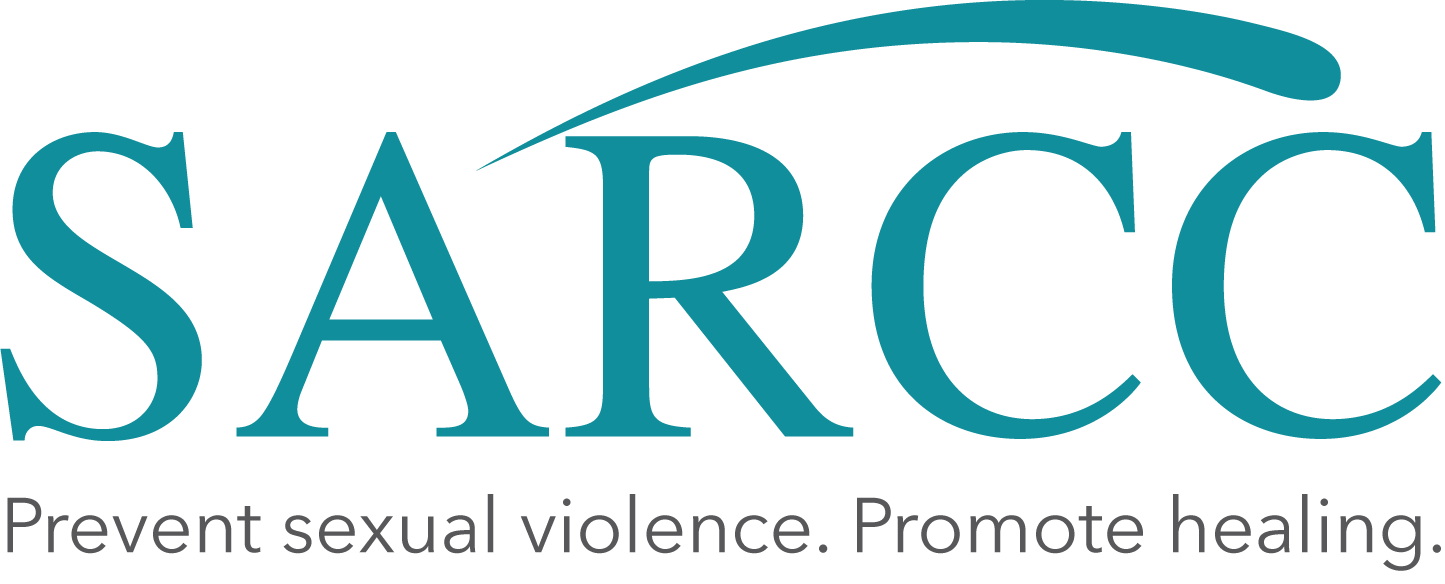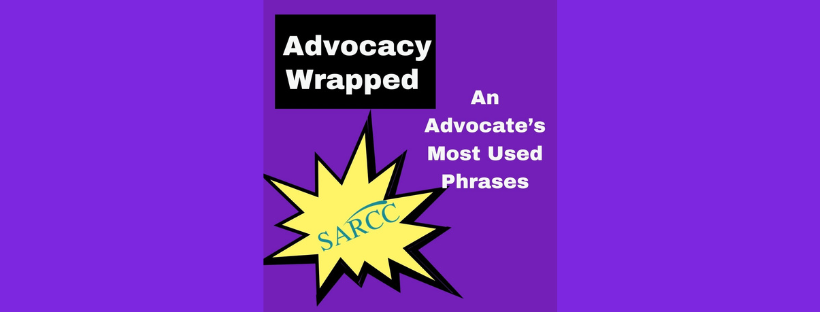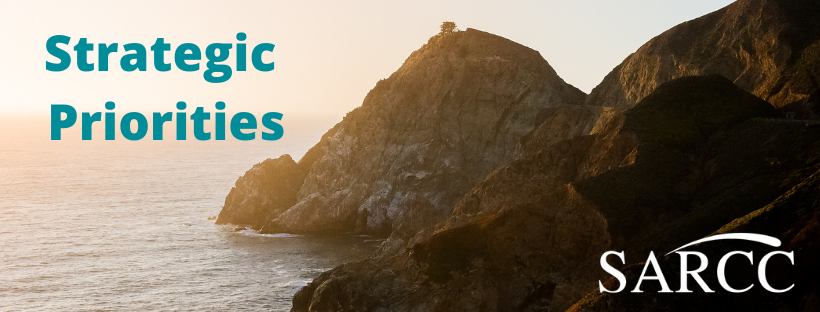Counseling Advocacy Wrapped
Spotify Wrapped came out last week. For those of you that don’t know what that means, Spotify is a music app and around the first week of December every year the app will review the artists, songs, and genres you listened to the most in the past year. It’s a fun thing to share on social media as you see what your friends listened to and sometimes even discover new music.
It made me think of what are my Top 5 things I say when I speak with clients. This is my unofficial SARCC Edition of Advocacy Wrapped.
1. “Grounding. Grounding. Grounding.”
One of the first things I talk about with clients is the concept of grounding. Grounding means being in the present. It’s hard for people who have experienced trauma, who might be reliving harmful experiences. But by being in the present, a person’s brain and body are (hopefully) making new connections and a new sense of safety. Whether it’s the 5-4-3-2-1 technique or this great resource about grounding , being mindful and in the moment is an empowering way to help you realize that you are not that person being hurt anymore; you’re taking the brave steps towards healing by being in the moment. Even for people who have not experienced sexual violence, it’s a great practice to help you “get out of your head.”
2. “How are you going to take care of yourself today?”
“How are you going to take care of yourself today? Big or small. What are you doing for yourself?”
I’ve always discussed self-care with my clients, but this has been a newer thing I’ve been asking at the end of sessions, hearings, and medical exams.
I love the answers I receive! People who aren’t expecting the question usually pause. My returning clients expect the question. I even had a client who would ask me the same thing at the end of session!
I get so many different types of responses:
“I’m going to Dunkin’ and getting a donut.”
“I’m taking a nap.”
“I’m going to take a shower when I get home.”
“I’m making cookies.”
“I’m going swimming.”
“I’m hanging out with my girlfriend.”
For my clients who are struggling with an answer, we talk about small caretaking tasks. Drinking a glass of water, doing laundry, or allowing yourself to cry are all forms of self-care. Working on yourself is BIG self-care, so how are you going to continue that when you leave the office?
3. “What are your accommodations for yourself?”
Accommodation. Noun. The providing of what is needed or desired for convenience.
When I was going through orientation as a first year college student, I remember a representative from the Disability Services department talking about accommodations for students. One of the things the staff member mentioned was colored overlays for reading.
It was the first time I ever heard this, and I didn’t give it much thought at the time until years later I read that some people read better with different colored backgrounds. I personally don’t utilize this technique, but it did make me think of other accommodations we use in life.
Sunglasses when it’s sunny.
Glasses for people who have problems with their vision.
Comfortable clothing for working out.
Mobility devices.
The right music playlist when we are hanging out with friends.
So why can’t we have accommodations for bad days?
When I talk about accommodations with people, there are two points:
1. Acknowledgement of the challenge
2. A reasonable adjustment to ease the challenge
Acknowledging there is an issue can feel vulnerable, but I’m also the type of person who believes vulnerability is where a lot of growth can come from (thanks, Brene Brown!) But when we acknowledge there’s a problem, we can start to find a solution.
It’s important to add that accommodations should be reasonable. No energy to brush your teeth? Maybe it means using mouthwash instead. Don’t feel like cooking? What about a scrambled egg with a can of vegetables?
Reaching out to others, spending time with a pet, getting Door Dash, drinking water, and making playlists for certain moods are all accommodations that my clients have made for themselves.
And if that accommodation doesn’t work out, that’s okay. We’ll try again tomorrow.
4. “You’re angry because you’re worth it.”
I say this one so often that I wrote a blog on it two years ago.
Anger is ugly to unpack. I don’t think people like to feel angry, and for people unfamiliar with anger, it’s terrifying because it’s overwhelming and feels like it may never end.
I don’t really subscribe to the whole “Anger is a secondary emotion” thing. Let’s look it in the eye and give it its own identity.
If you think about the times you’ve been angry in your life, it often is tied to someone or something, on a large or small scale, doing something that says, “You’re not worth it.”
Being sexually assaulted is a heinous violation. Sometimes, survivors feel so low about themselves that they don’t acknowledge or understand this until they are in a spot where they know they deserved better. And when that happens, they are MAD.
The healing process involves anger. You know why? It’s because you’re worth it.
5. “You got this.”
This is my go-to phrase before a hearing, during an exam, when a client tells me their story… “You got this.”
It’s not just an empowering phrase of affirmation. Getting something also means it’s yours, and when something is yours, you have a little more control over the situation.
It’s a tough perspective change and one that requires a lot of self-advocacy and even a little belief in oneself, as hard as that may be.
Your healing is yours. Make it yours. You got this.
#counselorblog



